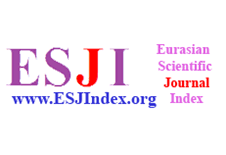Pecularities of teaching English to technological students
Kuchkinov Khudaybergan Khidirovich
Termez state University of engineering and agritechnologies
Keywords: teaching english, technological students, english for specific purposes (esp)
Abstract
Teaching English to technological students presents unique challenges due to their specialized academic focus and the distinct language skills they require. In contrast to general English instruction, technological students need English for Specific Purposes (ESP), emphasizing technical vocabulary, professional communication, and academic writing within their field of study. These students often engage with technical texts, such as manuals, research papers, and software documentation, necessitating an approach that integrates technical language into real-world contexts. The importance of developing strong reading, writing, listening, and speaking skills tailored to professional and academic needs is crucial for ensuring effective communication in global and interdisciplinary settings. This article explores the peculiarities of teaching English to technological students, highlighting strategies to engage them through practical applications, motivation, and technology-enhanced learning, ensuring that they acquire the necessary language skills for success in their future careers.
References
1. Dudley-Evans, T., & St. John, M. J. (1998). Developments in English for Specific Purposes: A Multi-Disciplinary Approach. Cambridge University Press.
2. Hyland, K. (2006). English for Academic Purposes: An Advanced Resource Book. Routledge.
3. Jordan, R. R. (1997). English for Academic Purposes: A Guide and Resource Book for Teachers. Cambridge University Press.
4. Robinson, P. (1991). ESP Today: A Practitioner’s Guide. Prentice Hall.
5. Belcher, D. D. (2006). English for Specific Purposes: Teaching to Perceived Needs and Unstated Goals. TESOL Quarterly, 40(1), 133–156.
6. Kincaid, D., & Eslami, Z. R. (2017). The Role of Technology in English Language Learning for Students in Technical Fields. Language Learning & Technology, 21(1), 123–145.
7. Swales, J. M. (1990). Genre Analysis: English in Academic and Research Settings. Cambridge University Press.
8. Strevens, P. (1988). ESP after Twenty Years: A Reappraisal. In E. H. E. (Ed.), ESP: State of the Art. Pergamon Press.
9. Dudley-Evans, T. (2000). The Role of English in Globalized Technical Communication. Globalization and Language Teaching, 141-160.
10. Long, M. H., & Richards, J. C. (2006). Methodology in TESOL: A Book of Readings. Heinle & Heinle.

















